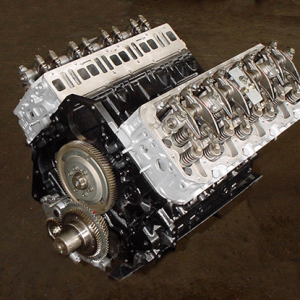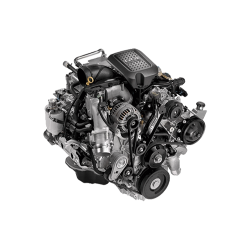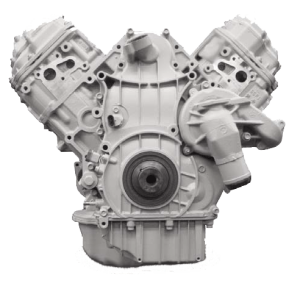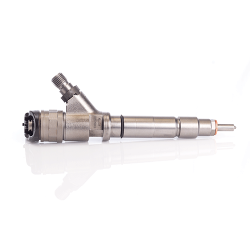The Chevrolet Engine is a General Motors diesel engine family for light to medium duty trucks. The 6.6-liter Chevrolet Engines are produced by DMAX, a joint venture between GM and Isuzu in Moraine, Ohio. The Chevrolet Engine was released in late 2001 into the Chevrolet and GMC chassis vehicles. The Chevrolet Engine was replacing the old 6.5-L Detroit built engine which was a big jump forward in technology. GM was the first of the manufacturers to make this jump and gave GM an added advantage in the diesel truck market. The Chevrolet Engine utilized the new Bosch Common Rail Fuel system. The early fuel systems included an ECM (Engine Control Module), CP3 Injection pump, FICM (Fuel Injection Control Module), and injectors. The later version fuel system did away with the FICM and utilize a CP4 injection pump. The common rail term comes from the fuel rail that is shared by all injectors.
The Chevrolet Engine had some issues that appeared not too long after initial release. GM extended the warranty on the injectors to 200,000 miles due to failures that were widespread. Changing the injectors on the LB7 Chevrolet Engines was a little time consuming since they were located under the valve cover. Air bubbles in the fuel lines turned out to be the cause for the premature failure of the injectors. When these air bubbles were present in the fuel line they accumulated in the CP3 pump. When the injector went to fire the bubble would get between the injector plunger and the injector tip. With the bubble there the injector plunger has no fluid damping when it comes into contact with the injector tip causing a small gap to form over time. Once that gap grows large enough fuel is allowed to flow through continuously since the rail is pressurized so high. The computer system was unable to determine if this is happening so the check engine light would not notified the driver. The only way to determine if this was happening was to measure the return fuel flow rate.
Aftermarket companies like AirDog & FASS came up with the solution to the injector failures called a Fuel Air Separation System. Once one of these systems was added to the vehicles they proved to extend the life of the injectors to around 400,000 miles according to many “hot shot” drivers & fleet vehicle owners.





